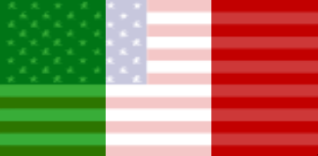 Open innovation is taking over in many areas, and open source plays an important role especially in software sequential innovation, where each successive invention builds in an essential way on its predecessors. Foremost, for the most of us before anything else software (open source included) is a tool towards a goal.
Open innovation is taking over in many areas, and open source plays an important role especially in software sequential innovation, where each successive invention builds in an essential way on its predecessors. Foremost, for the most of us before anything else software (open source included) is a tool towards a goal.Guy Kawasaki two years ago explained how he managed to create a new venture aiming at delivering UGC through a social media platform, called Truemors (later renamed NowPublic). Below a small excerpt:
- 7.5 weeks went by from the time I registered the domaintruemors.com to the site going live. Life is also good because of opensource and Word Press.
- $4,500. The total software development cost was $4,500. The guy sat Electric Pulp did the work.Honestly, I wasn't a believer in remote teams trying to work together on version 1 of a product, but Electric Pulp changed my mind.
Earlier this winter I had a similar experience. As secretary of an association I have been asked to start a so called web 2.0 portal for the association, and we managed to do it with as less as 3750,00 euros. As a matter of fact, open source is a viable alternative, but there is more than just some dime savings around the corner.
The case for open source innovation.
Open Source innovation is known to be one of the most hyped words: the world split in open source enthusiasts claiming that open source is as much innovative as proprietary software (or even more) and people saying that open source can just mimic.
"Innovation Happens Elsewhere" puts clearly why relying on external sources of innovation make sense:
Innovation happens everywhere, but there is simply more elsewhere than here. Silly as it sounds, this is the brutal truth: Regardless of how smart, creative, and innovative you believe your organization is, there are more smart, creative, and innovative people outside your organization than inside.
Open source can enable innovation, not only in recession times. Companies like Google (probably before anyone else), Facebook or Twitter are all heavily relying upon open source technologies. Beyond standing on giants' shoulders, those companies give also back to the open source community, as seen with Google summer of code and at large with Google code, open source at Facebook as well as open
source at Twitter.
Clayton Christensen back in 1995 began to talk about "disruptive technology", to later replace disruptive technology with the term disruptive innovation. Reason is that he recognized that few technologies are intrinsically disruptive or sustaining in character: what makes a technology an innovation enabler, is the way it is used to deploy a business
strategy.
Open source plays an important role in this respect, either when we talk of low-end disruption innovation or new market disruption. Look at how open source helps Mind the Bridge members, like in the Funambol case, making business out of commercial open source products, as well as innovating partnering with JAJAH to allow mobile users to call abroad at a fraction of the cost. Think of <your company, if there is some open source tell the story about what you're doing>
Low end disruption innovation - happening when technology advances faster than customers' needs (Oracle in the database space, Microsoft in the office automation arena, Filenet in the ECM world, etc) - it is the very first stop in a maturity model for open source adoption.
Open source adoption has to be managed, if you are going to use open source software you need some education and management. You need to pay more attention if you decide to spend time and effort to get off the best from open source coopetition, see what companies like Day Software do in this respect (yet selling innovative proprietary products).
When in doubt about how to adopt open source technologies, remember Dijstra's words:
[..] elegance requires great care to be achieved and education to be appreciated. In contrast we shall stress that in sophisticated designs, elegance is not a dispensable luxury, but a factor that often decides between success and failure.












